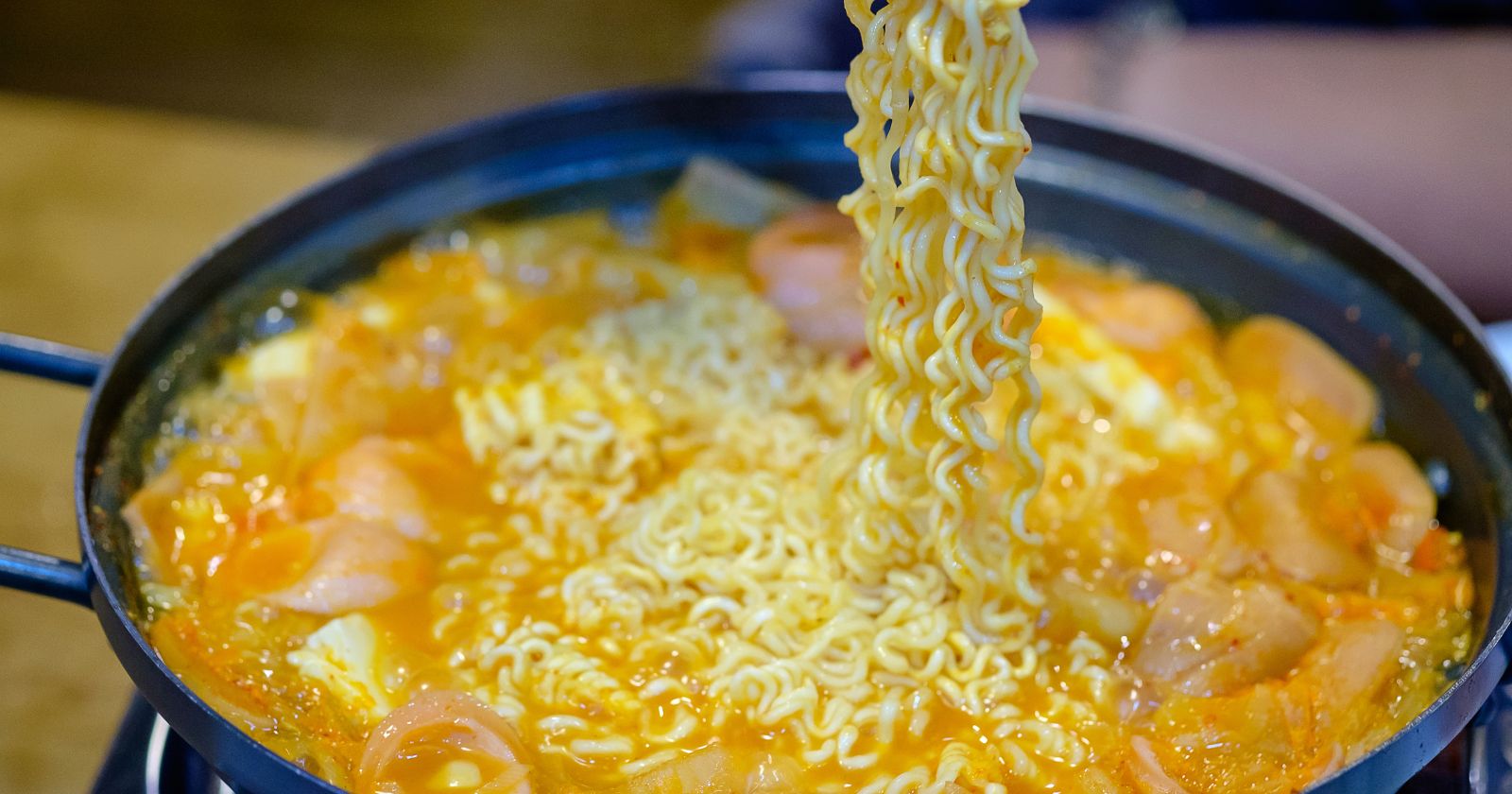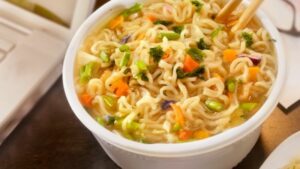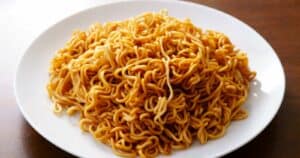Craving tasty ramen three days straight? We don’t blame you one bit! But before diving into bowl after bowl, you may wonder – is eating this savory dish repeatedly bad for my health?
The answer is, it depends. Plain ramen packs a punch of fat, sodium, and calories without much nutritional value. Eating it too often could cause weight gain and other issues. But with a few easy tweaks, you can customize your ramen in healthier ways.
In the following sections, we’ll explore how ramen impacts your body, simple add-ins to boost nutrition, and tips for portion control and sodium reduction. You’ll learn how to balance your love of slurpable noodles with making smart choices for your health. So say goodbye to boring bowls, and let’s start crafting nutritious ramen you can enjoy guilt-free!
How Ramen Impacts Your Health
Ramen is delicious, but it can significantly impact your health when eaten regularly. Instant noodles tend to be low in nutrients yet high in calories, fat, and sodium.
“While tasty, ramen is often low in nutritional value but packed with calories, fat, and sodium.”
- One serving of instant ramen contains 188 calories, 7g fat, 27g carbs
- Restaurant ramen can have up to 380 calories, 14g fat, 1,660mg sodium
- Overdoing calories, fat, and sodium leads to weight gain and hypertension
To make ramen healthier, opt for low-sodium varieties, watch portions, and add nutritious mix-ins. With smart choices, you can still satisfy your ramen craving!
How Many Times Can I Eat Instant Noodles In A Week?
While tasty and convenient, it’s best to limit your instant noodle consumption due to the high sodium, fat, and calorie content. Here’s a guide to how often you can reasonably enjoy them:
- 1 time per week – Eating instant noodles once a week is moderately healthy, especially if you choose lower sodium varieties. Be sure to pair it with vegetables, protein, and drink water.
- 2 times per week – Having instant noodles twice weekly is still considered moderate consumption. Pay attention to serving sizes and add nutritious toppings to balance the meal.
- 3 times per week – Three times moves into the higher range of recommended instant noodle consumption. Focus on controlling portions and incorporate them as a side dish rather than the main meal.
- 4+ times per week – Eating instant noodles 4 or more times weekly starts to become excessive. At this frequency, it will likely impact your sodium and nutrient intake negatively. It’s best to limit to 1-3 times weekly.
- Daily – Having instant noodles every day is not recommended. This can lead to poor nutrition, weight gain, and increased risk of certain health conditions over time due to the additive and preservative content.
What Happens If You Eat Ramen Noodles Everyday?
Ramen noodles are an easy, budget-friendly meal. But eating them daily can negatively impact your health due to the lack of nutrients and high amounts of fat, carbs, and sodium.
Here’s what can happen if you eat ramen noodles everyday:
- Weight gain – Ramen is high in calories and carbs but low in protein, fiber, and nutrients. This can lead to weight gain over time, especially if you’re sedentary.
- High blood pressure – The extremely high sodium content in ramen can cause high blood pressure and other heart issues with regular consumption.
- Nutrient deficiencies – Lack of vitamin, minerals, and other nutrients may occur since ramen lacks nutritional value. This can cause fatigue, illness, and poor immune function.
- Digestive problems – Ramen lacks fiber, so eating it daily may cause constipation. The high fat and salt content can also lead to bloating and diarrhea.
- Increased cancer risk – Some studies link regular instant noodle consumption to increased risk of certain cancers. This is likely due to the preservatives and sodium.
Boost Nutrition with Healthy Add-Ins
Transform your bowl into a nutritious meal by adding:
- Lean protein – Chicken, egg, or tofu gives a nutritional boost.
- Veggies – Carrots, mushrooms, kale increase fiber, vitamins.
- Low-sodium broth – Cuts back on excess sodium.
- Whole grain noodles – More nutrients than refined options.
- Healthy fats – Olive or sesame oil instead of butter.
“Pack your ramen full of nutritious ingredients like veggies, lean protein, and whole grains for a healthier, balanced meal.”
It’s All About Portion Control and Moderation
To enjoy ramen without overdoing it:
- Stick to single servings to control calories, fat, and sodium.
- Leave out flavor packet and add your own healthy seasonings.
- Mix in high-protein ingredients like meat or eggs.
- Eat ramen in moderation as part of a varied diet.
“Practice portion control, limit frequency, and balance ramen with other healthier options.”
Slashed Sodium: Reducing Salt in Your Ramen
To reduce sodium when eating ramen repeatedly:
- Choose low-sodium broth, miso paste, soy sauce.
- Boost flavor with garlic, ginger, herbs instead of salt.
- Rinse noodles before cooking to remove excess salt.
- Use just a portion of the seasoning packet.
“Cut back on sodium with low-salt ingredients, herb seasonings, and rinsing noodles.”
Trying Alternative Healthy Noodles
For a nutrition upgrade, swap traditional noodles for:
- Zucchini noodles – Low-calorie, low-carb zoodles.
- Soba noodles – Higher in protein and fiber.
- Shirataki noodles – Almost zero carbs or calories.
- Vegetable broth – Lower in sodium than meat broths.
Get creative and discover new healthy ways to enjoy your ramen while keeping your body feeling good! In moderation, with nutritious customizations, ramen can still be part of a balanced diet.
So go ahead and slurp up that ramen – just be mindful about ingredients, portions, and frequency. With a few easy tweaks, you can still indulge in this delicious meal without sabotaging your health!





